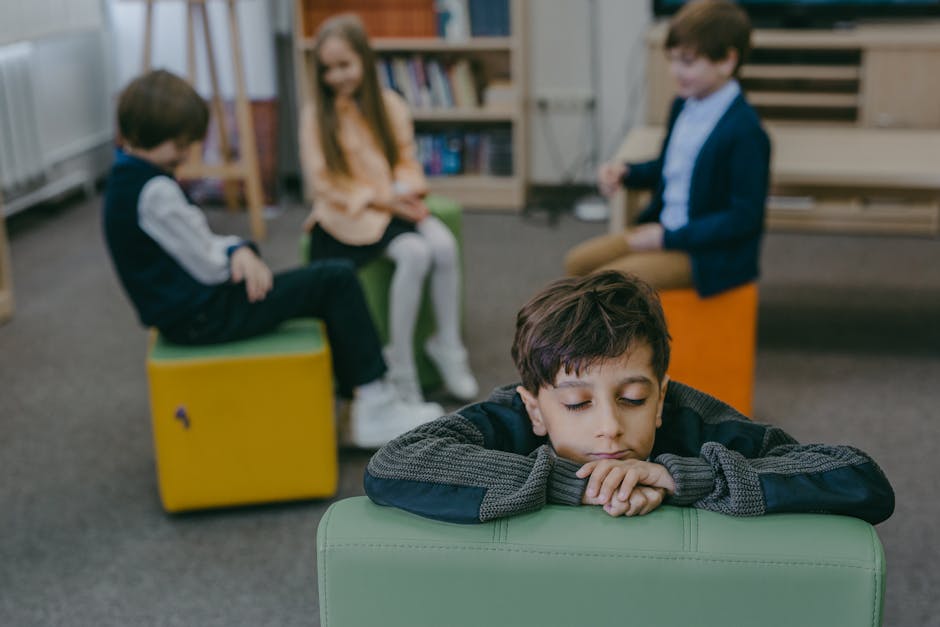Feeling left out in friendships can sting like a paper cut—small but surprisingly painful. It’s a universal experience, yet it often feels deeply personal. Whether it’s seeing your friends hang out without you or feeling like the odd one out in a group conversation, the sense of exclusion can leave you questioning your worth. But here’s the good news: you’re not alone, and there are ways to navigate these feelings while strengthening your friendships and self-esteem.
Keep reading to uncover practical strategies to handle these emotions, improve your relationships, and build a more balanced social life. Let’s dive in!
Key Takeaways
- Feeling left out is a common experience and doesn’t define your value.
- Processing your emotions and communicating openly can help.
- Strengthening self-worth and taking proactive steps in friendships are key.
- Building a balanced social life and practicing self-care are essential.
Understanding the Feeling of Being Left Out
Why Feeling Left Out Happens
Feeling excluded can happen for many reasons. Maybe your friends made plans without realizing you’d feel hurt, or perhaps you’re part of a group where you don’t share the same interests. Sometimes, it’s just a misunderstanding or a scheduling conflict.
Social dynamics can be tricky, and even the closest friendships can have moments of miscommunication. It’s important to remember that being left out doesn’t always mean you’re unwanted—it could simply be a case of crossed wires.
The Emotional Impact of Exclusion
Being left out can trigger a whirlwind of emotions—sadness, anger, or even jealousy. It’s easy to spiral into self-doubt, wondering if you’re not good enough or if you’ve done something wrong. These feelings are valid, but they don’t define who you are.
Psychologists often compare social exclusion to physical pain because it activates the same areas of the brain. This is why it can feel so intense. Recognizing this can help you understand that your reaction is natural, not a sign of weakness.
Recognizing the Signs of Feeling Left Out
Sometimes, the signs are obvious—you weren’t invited to a party, or you see photos of your friends hanging out without you. Other times, it’s more subtle, like feeling ignored in a group chat or sensing that your input isn’t valued.
Pay attention to these feelings, but don’t let them consume you. Acknowledging them is the first step toward addressing the issue.

Accepting and Processing Your Emotions
Allowing Yourself to Feel Without Judgment
It’s okay to feel hurt. Suppressing your emotions can make them fester, like a wound that doesn’t heal. Instead, give yourself permission to feel sad or upset without labeling those emotions as “bad.”
Journaling or talking to someone you trust can help you process these feelings. Remember, emotions are like waves—they come and go.
Identifying the Root Cause of Your Emotions
Ask yourself: Why do I feel left out? Is it because I value this friendship deeply, or is it tied to past experiences of rejection? Understanding the root cause can help you address the issue more effectively.
For example, if you’re feeling insecure about your social skills, you might benefit from exploring techniques for coping with and overcoming loneliness.
Practicing Self-Compassion
Be kind to yourself. Imagine how you’d comfort a friend in your situation, and offer yourself the same support. Self-compassion can be a powerful tool for healing and growth.

Avoiding Negative Assumptions
Reframing Your Perspective
Instead of jumping to conclusions, try to see the situation from a different angle. Maybe your friends didn’t realize you’d feel left out, or perhaps they assumed you were busy.
Reframing your thoughts can help you approach the situation with a clearer mind and less emotional baggage.
Avoiding Jumping to Conclusions About Others’ Intentions
It’s easy to assume the worst, but doing so can strain your relationships. Instead of thinking, “They don’t like me,” consider, “Maybe they forgot to invite me this time.”
Considering External Factors That May Contribute
Sometimes, external factors like stress, work, or family obligations can affect how people interact. Understanding this can help you avoid taking things personally.

Improving Communication with Friends
Expressing Your Feelings Openly and Calmly
Honest communication is key. Let your friends know how you feel without blaming them. For example, you could say, “I felt a bit left out when I saw the photos from last weekend. I’d love to join next time.”
Choosing the Right Time and Setting for Conversations
Timing matters. Choose a moment when you can talk privately and calmly, rather than bringing it up in the heat of the moment.
Listening to Their Perspective
Friendship is a two-way street. Give your friends a chance to explain their side. They might not even realize how their actions affected you.

Strengthening Your Self-Worth
Reminding Yourself of Your Strengths
Make a list of qualities you love about yourself. Are you a good listener? Do you have a great sense of humor? Focusing on your strengths can boost your confidence.
Engaging in Activities That Boost Your Confidence
Try something new, like joining a class or volunteering. These activities can help you meet new people and feel more connected.
Practicing Gratitude for Existing Relationships
Take a moment to appreciate the friends and family who do value you. Gratitude can shift your focus from what’s missing to what you already have.

Taking Proactive Steps in Friendships
Extending Invitations to Friends
Don’t wait for others to make plans—take the initiative! Invite your friends to hang out or try a new activity together.
Exploring Shared Interests and Activities
Find common ground with your friends. Whether it’s a hobby, a TV show, or a fitness class, shared interests can strengthen your bond.
Being Open to Making New Connections
Sometimes, feeling left out can be a sign that it’s time to expand your social circle. Check out these steps to build a supportive network of family and friends.

Seeking Support
Talking to a Trusted Friend or Family Member
Sometimes, just venting to someone who cares can make a world of difference. They might even offer helpful advice or a fresh perspective.
Joining Supportive Communities or Groups
Online forums or local meetups can be great places to connect with people who understand what you’re going through. For example, this Reddit thread offers relatable advice on handling exclusion.
Considering Professional Help, Such as Therapy
If feelings of exclusion are affecting your mental health, a therapist can help you work through them. Therapy is a safe space to explore your emotions and develop coping strategies.

Building a Balanced Social Life
Diversifying Your Social Circle
Having friends from different areas of your life—work, hobbies, family—can make your social life more fulfilling and less dependent on one group.
Setting Realistic Expectations for Friendships
No friendship is perfect. Accepting this can help you focus on the positives rather than dwelling on the negatives.
Focusing on Quality Over Quantity
It’s better to have a few close friends who truly care about you than a large group where you feel overlooked.

Practicing Self-Care
Doing Activities That Bring You Joy
Whether it’s painting, hiking, or binge-watching your favorite show, make time for things that make you happy.
Prioritizing Your Mental and Physical Well-Being
Exercise, eat well, and get enough sleep. A healthy body supports a healthy mind.
Taking Breaks from Social Media If Needed
Social media can amplify feelings of exclusion. If scrolling through Instagram makes you feel worse, it’s okay to take a break.
Moving Forward
Accepting That Not All Friendships Are Permanent
Some friendships fade over time, and that’s okay. It doesn’t mean you’re unworthy—it’s just a natural part of life.
Learning from the Experience
What can you take away from this situation? Maybe it’s the importance of communication or the value of self-care.
Embracing Opportunities for Personal Growth
Every challenge is an opportunity to grow. Use this experience to strengthen your resilience and deepen your understanding of yourself.

Feeling left out is tough, but it’s not the end of the world—or your friendships. By processing your emotions, communicating openly, and focusing on self-care, you can turn this experience into an opportunity for growth. And remember, you’re never truly alone. There’s always someone out there who values you—sometimes, you just have to look in the mirror to find them.
Feeling Left Out? A Gentle FAQ Guide to Navigating Friendships
Why do I feel left out in my friendships?
Feeling left out can stem from miscommunication, differing expectations, or personal insecurities. It’s important to reflect on the dynamics of the friendship and consider whether the feelings are based on perception or actual exclusion.
How can I address feeling left out with my friends?
Open communication is key. Share your feelings calmly and honestly without placing blame. Use ‘I’ statements, like ‘I feel left out when…’ to express your emotions and foster understanding.
What if my friends don’t understand or dismiss my feelings?
If your friends dismiss your feelings, it might indicate a lack of empathy or compatibility. Consider whether the friendship aligns with your emotional needs and boundaries. Healthy friendships value mutual respect and understanding.
How can I build my confidence when I feel excluded?
Focus on self-care and activities that bring you joy. Building self-esteem through hobbies, personal achievements, or connecting with new people can help you feel more secure and less reliant on external validation.
Is it normal to feel left out sometimes?
Yes, it’s normal to feel left out occasionally. Friendships can ebb and flow, and not every moment will include everyone. However, consistent feelings of exclusion may require deeper reflection or action.
How can I expand my social circle if I feel isolated?
Try joining clubs, attending community events, or pursuing hobbies where you can meet like-minded people. Building new connections can help you feel less dependent on a single group for social fulfillment.
What are some signs of a healthy friendship?
Healthy friendships are built on mutual respect, trust, and communication. They involve support during tough times, shared joy in successes, and the freedom to be yourself without fear of judgment.
How can I avoid overthinking when I feel left out?
Practice mindfulness and challenge negative thoughts. Remind yourself that exclusion isn’t always intentional and focus on the positive aspects of your relationships. Journaling or talking to a trusted confidant can also help.
Should I confront my friends every time I feel left out?
Not necessarily. It’s important to assess the situation first. If it’s a one-time occurrence, it might not require confrontation. However, if it’s a recurring issue, addressing it calmly can help clarify misunderstandings.
When is it time to let go of a friendship?
If a friendship consistently makes you feel undervalued, disrespected, or unhappy despite efforts to improve it, it may be time to consider letting go. Prioritize relationships that uplift and support you.



